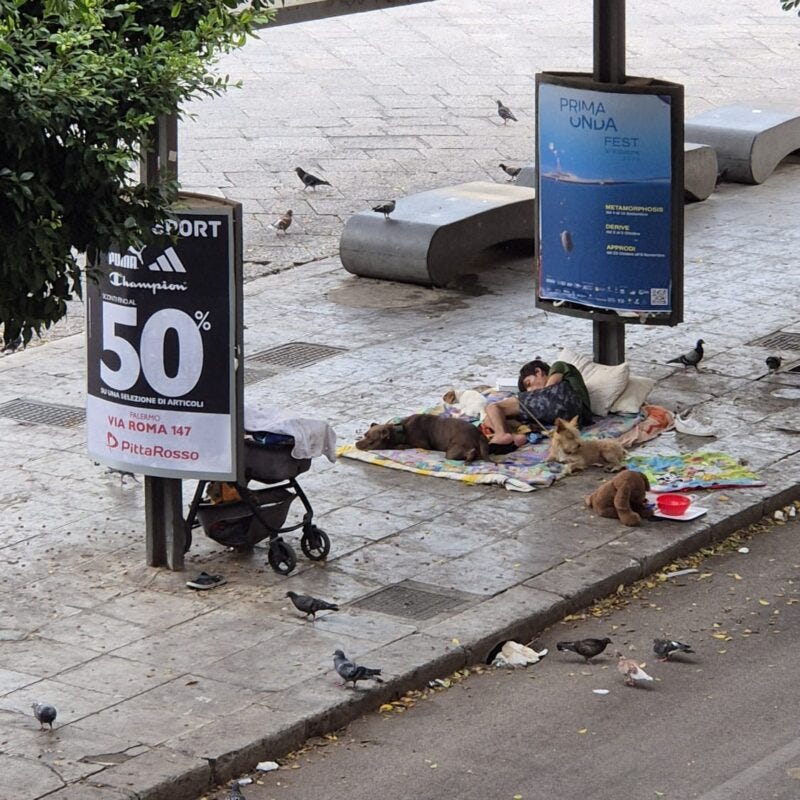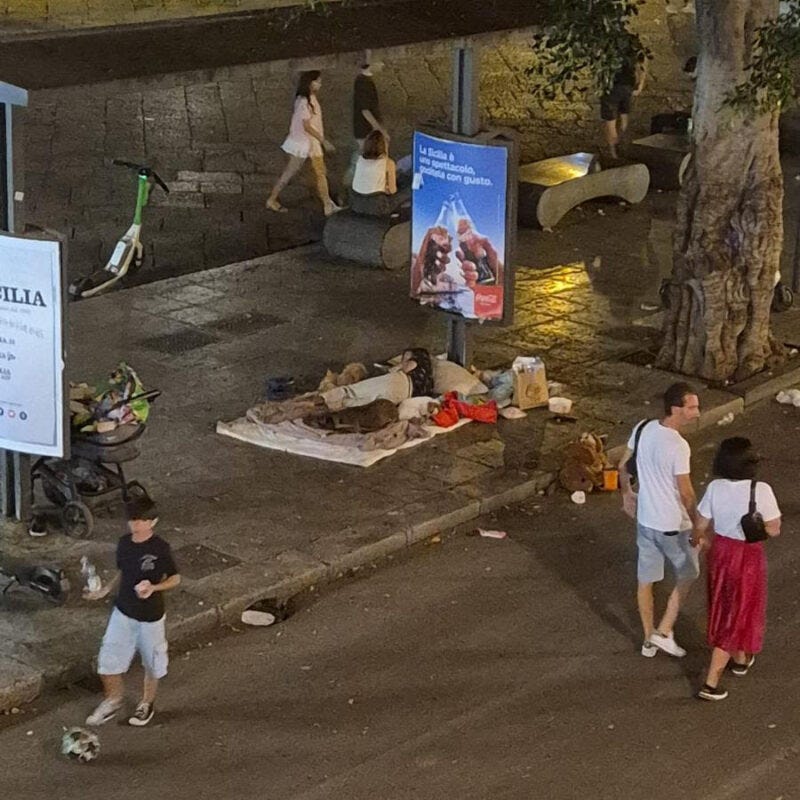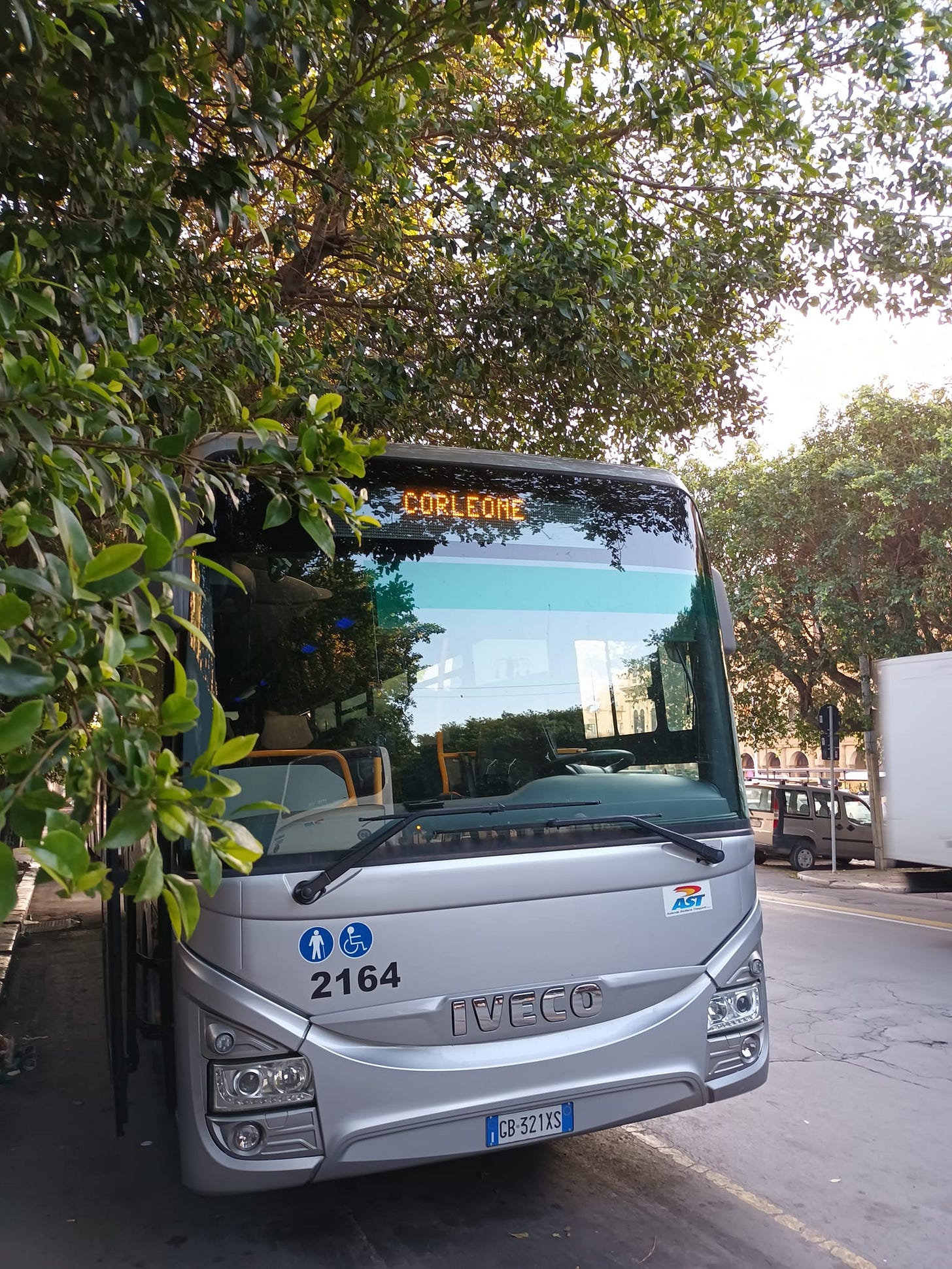Exploding Coffins, Dangerous Streets.
Pity poor Palermo.
It has been a long hot summer in England, but spare a thought for the people of Palermo, where the heat has been unbearable and led to some unforeseen circumstances, such as coffins exploding. Yes, you read that correctly. Extreme temperatures have meant that unburied coffins in the cemetery of Villabate, some thirty minutes from the city, have burst open. This problem has been made worse by the recent power cut that affected the Town Hall in Villabate which meant that officials were unable to access their emails. So the cemetery with the exploded coffins has remained closed, because the Town Hall was unable to access its emails and the replies to the tender it had put out to various undertakers to come and seal the coffins. But we are assured this will happen next week, when all the paperwork is in order. Meanwhile the Giornale di Sicilia tells us ‘More time will pass, while the decomposition of the bodies causes the leakage of organic fluids from the unburied coffins.’ Not a nice thought!
But if it is bad for the dead, and for those who mourn them, it is not good for the living either. The very centre of Palermo, the once elegant Piazza Verdi, home to the Teatro Massimo, the opera house, now is the site of an encampment of homeless people, many of them migrants, while the via Maqueda, the main street leading up the square, has become a zone of lawlessness.
The Giornale di Sicilia says:
“On the pavement of Via Maqueda, just steps from the entrance to one of its most famous sights, homeless people lounge on cardboard and blankets, their dogs curled up on the asphalt beside them. One sits in the middle of the pedestrian area, while another, a little further away, sleeps under the shelter of the bus stop, which has been out of use for years. And then bowls, bags, and trolleys full of clothes and other makeshift items are scattered everywhere. In the background, tourists and families stroll, forced to make their way through the bivouacs. The contrast is stark: on one side, the lights of the Teatro Massimo and the crowds of visitors; on the other, corners transformed into makeshift shelters and the constant presence of homeless people who have made Piazza Verdi theirs. Even when they are evicted, they return punctually to the same spot in the evening, as happened recently.”
The paper has also gathered some vox pops from locals, which make interesting reading:
“"Between Piazza Verdi and Corso Vittorio," Giuseppe emphasizes, "tourists will take away with them memories of bivouacs, muggings, stalls selling sunglasses and mobile phone cases, as well as an unregulated food village, which is also very dangerous due to the lack of escape routes."
Lello doesn't mince his words: "For several years now, the last stretch of Via Maqueda and the nearby side streets have been the territory of North African gangs. When you pass through, you have to be very careful and not make eye contact; they are typical gang provocateurs." Rosa, on the other hand, speaks of her daily fear: "I live nearby. It's impossible to live here anymore; you have to be careful at any time of day, otherwise they'll mug you or beat you up. Who do we have to thank for this? And why doesn't anyone try to resolve the situation?"
For Gianmarco, "Via Maqueda is at the mercy of veritable gangs of criminals and countless immigrants who camp out without anyone being able to evict them. I wonder why it's so difficult to intervene decisively."
The key thing to take away here is the sense that no one seems to be able to do anything about the situation. Italy has thousands of laws, and you need a licence to do almost anything, but no one has the will to enforce these laws. Government has lost its ability to govern. Go back to the exploding coffins of Villabate, and they tell us everything you need to know: if coffins start to explode there must surely be a solution that does not have to wait to next week, depend on people replying to your emails, or get delayed by a power outage; nor do you need to close the cemetery. Can no one get anything done?
This sense of despair at the failure of the authorities is dangerous, as it leads to a loss of authority, and a hollowing out of the offices that elected officials hold. Moreover this is not a new phenomenon in Sicily, where it goes back, no exaggeration, at least seven hundred years, to the time when Sicily lost its autonomy. English readers will naturally see parallels with our own history, namely the Winter of Discontent (1978-79), where the gravediggers’ strike put the final nail into the coffin (pun intended) of James Callaghan’s government; and to our more recent woes with housing migrants. What strikes one is the patience born of despair that characterises Sicilians.
Last time I was in Palermo (I may have told this story before now, if so, forgive me), I wasted a morning trying to find the bus to Corleone from outside the central station. The bus eventually came, but the driver announced announced he had run out of petrol so would not be making the trip. I asked a lady who had been waiting with me if this was usual. ‘Siamo in Sicilia,’ she said ‘We are in Sicily.’ Her weary tones summed up the experience of a people used to the failure of everything, even the busses.
PS To buy The Chemist of Catania, the first in the series of my Mafia novels, follow this link. To read the latest in the series, The Peace of Palermo, go here.





Fascinating - and dispiriting.